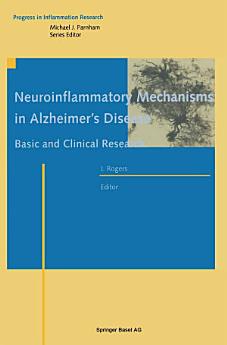Neuroinflammatory Mechanisms in Alzheimer’s Disease: Basic and Clinical Research
Joseph Rogers
Mar 2013 · Birkhäuser
Ebook
263
Pages
reportRatings and reviews aren’t verified Learn More
About this ebook
Research into inflammatory mechanisms that may cause damage to the Alzheimer's disease (AD) brain has now been ongoing for nearly two decades. Some two dozen clinical studies have strongly suggested that conventional anti-inflammatory drugs may be useful to delay the onset or slow the progression of the disorder. Moreover, virtually all the major systems of the innate immune response appear to be present, and most are upregulated, in pathologically-vulnerable regions of the AD brain. These new findings are described in this volume - first in overview form, followed by chapters on topics of special interest. In many ways, to understand AD brain inflammation, one need only review a text on peripheral inflammation biology, leaving out the chapters on humoral medi ators and substituting microglia for macrophages. In several other key respects, however, AD brain inflammation is unique, due primarily to idiosyncratic interac tions of inflammatory mediators and mechanisms with classical AD pathology: amyloid ~ peptide(A~) deposits and neurofibrillary tangles (NFTs). For this reason, some key concepts about the inflammation that occurs in AD may warrant discus sion in preparation for the more detailed chapters that follow.
Rate this ebook
Tell us what you think.
Reading information
Smartphones and tablets
Install the Google Play Books app for Android and iPad/iPhone. It syncs automatically with your account and allows you to read online or offline wherever you are.
Laptops and computers
You can listen to audiobooks purchased on Google Play using your computer's web browser.
eReaders and other devices
To read on e-ink devices like Kobo eReaders, you'll need to download a file and transfer it to your device. Follow the detailed Help Center instructions to transfer the files to supported eReaders.








